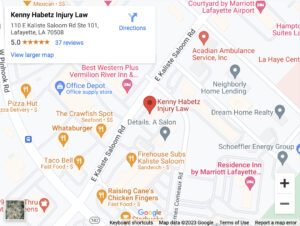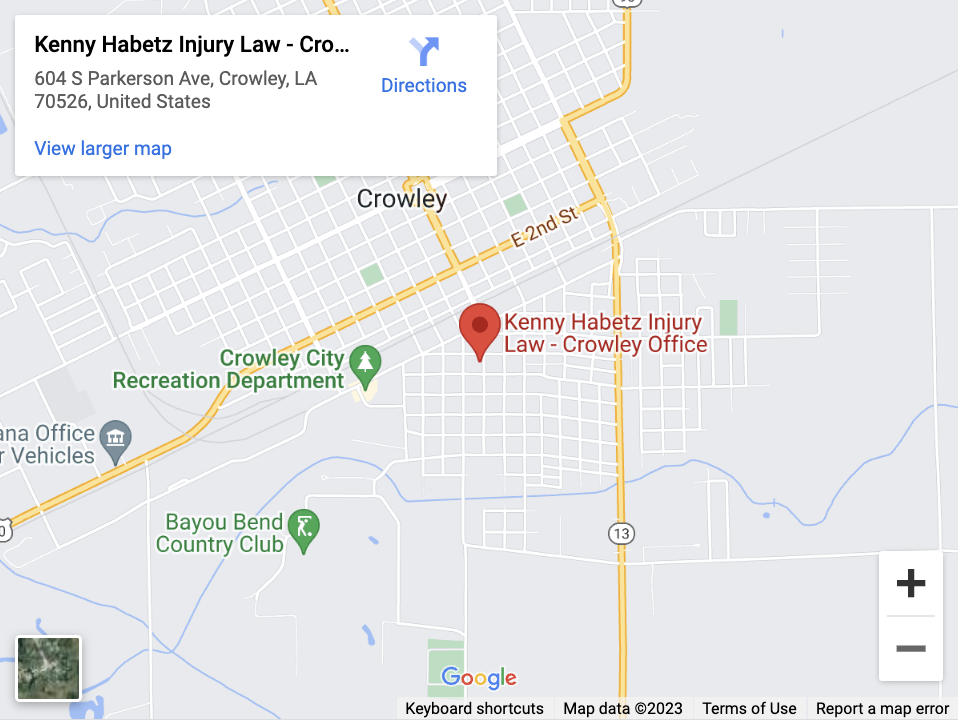Kenny Habetz Injury Law | April 1, 2023 | Brain Injuries
Brain injuries are among the most frightening wounds that can happen in accidents. A severe enough brain injury could leave you unable to ever live or work the same way again. And no matter what sort of brain injury you suspect you may have, it’s critical that you get medical attention right away.
There are two major classes of brain injury and three levels of severity that accident victims might face. Read on to learn more about these classifications and what characteristics you see with each.
Closed Brain Injuries
There are two basic types of brain injuries: open and closed. Closed brain injuries are the most common, and as the name suggests, they cover any brain injury that doesn’t involve a break in the skull. The fact that your brain is not exposed can make infection less likely, but these injuries can still be incredibly serious and even life-threatening.
Concussion
Concussions are one of the most common types of closed brain injuries. These wounds happen when a significant force or impact slings your brain into the inside of your skull. It’s possible to get a concussion even if your head never hits anything, especially in car wrecks, when your body is getting slung around with tremendous force.
Edema
Edema is a secondary condition that arises as the result of a traumatic brain injury. After an injury (such as a concussion), the brain may swell, putting pressure on the tissue and even crushing parts of the brain against your skull. This swelling is called edema, and it can cause serious damage if the pressure isn’t alleviated.
Hematoma
A hematoma is a condition in which blood pools in your brain as the result of a ruptured blood vessel. This can also put pressure on your brain and may start to damage some of the tissue there.
Diffuse Axonal Injury
Your brain is held in place within your skull by long bands of tissue that connect your brain to the bone. When those connective tissues get torn, it’s called a diffuse axonal injury, or DAI. As you might imagine, since these tissues are connected to so many parts of your brain, these injuries can cause significant damage in many areas of the brain.
Open Brain Injuries
Open brain injuries involve some crack or hole being created in the skull, exposing the brain. These injuries can be more susceptible to infection, since viruses and bacteria can now get to your brain more easily. They also leave your brain vulnerable to further trauma, since you don’t have the protection of your skull in that area any more.
Skull Fracture
Skull fractures are a common result of car accidents and falls in which you hit your head. These fractures can heal over time, but they may cause additional damage to your brain or complications in your recovery.
GSW
Gunshot wounds to the head can be incredibly dangerous, if the victim manages to survive at all. Bullets can introduce germs directly to the brain tissue, and the resulting open injury can leave a victim at enormous risk of infection. In addition, the concussive force of a bullet passing through the body damages tissues in a wide radius around the actual shot trajectory.
Minor TBI
Aside from the two types of brain injuries, there are three classifications of brain injuries medical professionals use: minor, moderate, and severe.
Minor TBI usually doesn’t cause the victim to lose consciousness. If they do pass out, they’re often awake within thirty minutes or less.
Symptoms of minor TBI can include
- Nausea or vomiting
- Headache
- Dizziness
- Vision problems
- Balance problems
- Sensitivity to light or sound
- Ringing in the ears
- Trouble concentrating or thinking clearly
- Emotional problems, such as anxiety or irritability
In most cases, minor TBI will heal on its own in a few weeks with appropriate rest. However, it is still very important to get examined by a doctor if you suspect you may have a minor TBI. It can be hard to tell how severe an injury is, and even minor TBI can lead to serious complications.
Moderate TBI
As you might suspect, moderate TBI is more serious and comes with more drastic symptoms. These injuries may cause unconsciousness for anywhere from half an hour to a full day.
Symptoms of moderate TBI can include
- Seizures or convulsions
- Weakness or loss of sensation in the arms and legs
- Continual nausea and vomiting
- Slurred speech
- Persistent headaches that get worse over time
- Loss of coordination
- Inability to wake up
- Abnormal pupil dilation
- Restlessness, confusion, or agitation
Some moderate TBI victims also experience memory loss for anywhere from twenty-four to seventy-two hours after the accident.
Severe TBI
Of course, the most serious brain injuries get classified as severe TBI. These injuries can be life-threatening or even fatal, especially if left untreated. If you or a loved one experience any of the following symptoms, see a doctor immediately.
Symptoms of severe TBI can include
- Loss of consciousness for more than twenty-four hours
- Repeated bouts of nausea or vomiting
- Headaches that get worse over time
- Abnormal pupil dilation
- Seizures or convulsions
- Loss of coordination and function in the limbs
You may notice that many of these symptoms overlap with moderate TBI. The two classifications can be hard to distinguish and will require professional medical care. Seek medical attention right away if you or someone you love starts showing any of these symptoms after an injury.
Get Compensation for Your Brain Injury
Brain injuries are extremely complex, but we can group them generally into one of two categories: open and closed. Open brain injuries tend to be more severe and carry a higher risk of infection, but closed brain injuries can be extremely dangerous, too. You can experience a mild, moderate, or severe brain injury that falls into either category. The one thing they all have in common is that they will require immediate medical attention.
If you’ve suffered a brain injury in an accident, you could be entitled to compensation. Schedule a free case evaluation with us today and start getting the representation you deserve.
Contact the Lafayette Brain Injury Law Firm Of Kenny Habetz Injury Law for Help Today
If you’ve been injured in Louisiana, please call Kenny Habetz Injury Law for a free case evaluation with a Lafayette brain injury lawyer or contact us online.
Kenny Habetz Injury Law – Lafayette
110 E Kaliste Saloom Rd Ste 101 Lafayette, LA 70508
(337) 399-9000
Kenny Habetz Injury Law – Crowley
604 S Parkerson Ave. Crowley, LA 70526
(337) 329-8883


